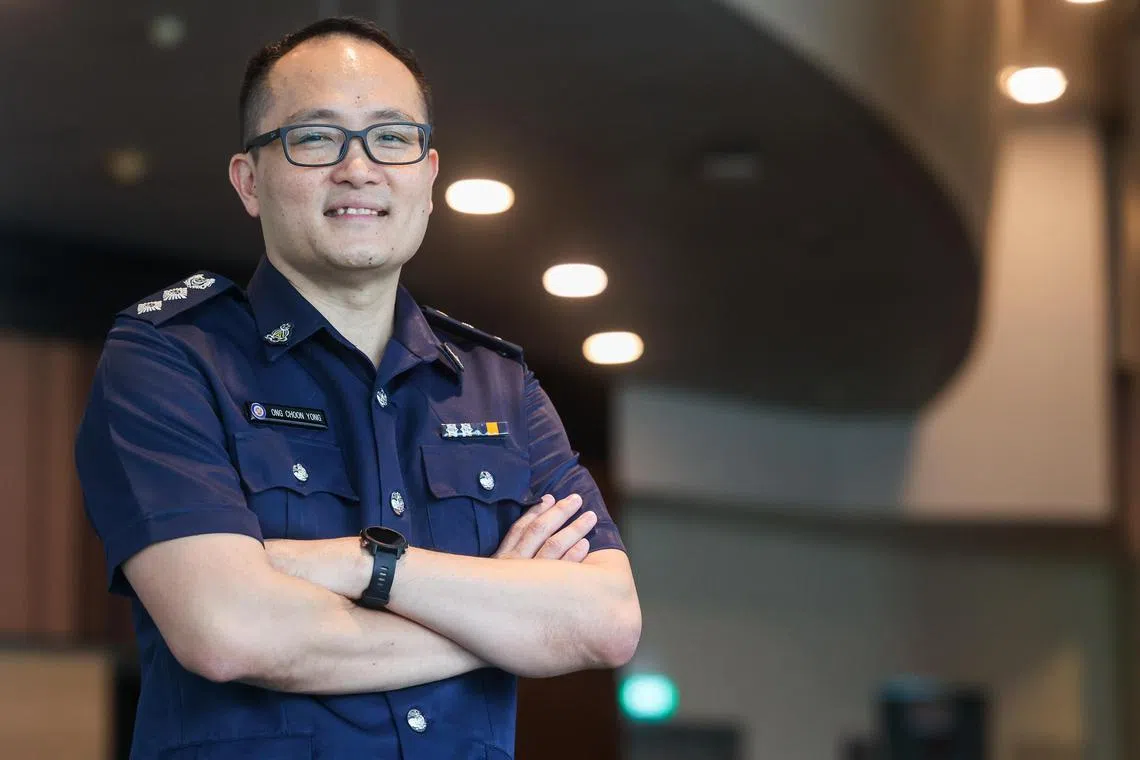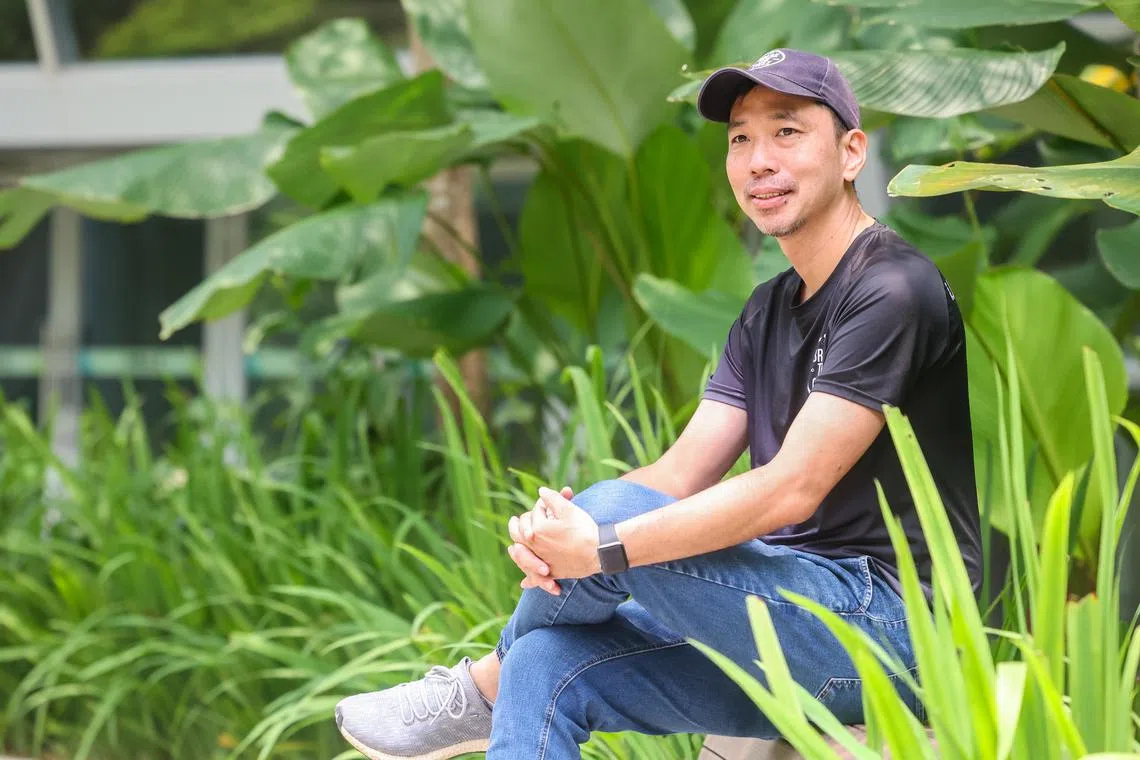Ex-offenders to work with prison officers to keep former convicts from reoffending
Sign up now: Get ST's newsletters delivered to your inbox

Minister of State for Home Affairs Muhammad Faishal Ibrahim said the Desistor Network will create opportunities for members to mentor or receive mentoring from other members.
PHOTO: LIANHE ZAOBAO
SINGAPORE – Former offenders will be working side by side with prison officers to keep former inmates on a crime-free path, to help tackle a worrying trend which saw four in 10 people previously incarcerated reoffend.
The Desistor Network will also see 53 agencies, including prison aftercare groups, partner the Singapore Prison Service (SPS) to better aid former offenders to reintegrate into society.
Partnering agencies include The Salvation Army, the Singapore Anti-Narcotics Association and halfway houses that help former offenders, including drug offenders, rebuild their lives.
Besides counselling, some agencies will also help with job placements.
Former inmates, or desistors, will get the choice of which courses or agency they want to sign up with. They can choose to join multiple agencies.
Speaking at the launch of the network at the Singapore Expo on Saturday, Minister of State for Home Affairs Muhammad Faishal Ibrahim said the network will create opportunities for desistors to mentor or receive mentoring from other desistors.
“Desistors have walked that difficult journey and are in fact still walking that path. In that way, inmates and former offenders will be able to relate to their life experiences, making the desistors a powerful source of inspiration.
“Through mutual exchange and sharing of life experiences, we believe the desistors can sustain their motivation, strengthen their conviction, and cultivate positive mindsets and attitudes that are key to long-term desistance,” added Associate Professor Faishal.
Superintendent of Prisons (Supt) Ong Choon Yong, who oversees the network as part of his work at SPS’ Rehabilitation and Reintegration Division, said that having the safe space provided by the network makes it easier for former inmates to support one another.
He said the idea to establish a network was conceptualised in August 2022. It has grown to be the largest multi-agency project that SPS has been involved in.
There are also other agencies applying to join the network, but Supt Ong said SPS had to take a pause to allow for its official launch.
“The launch event is symbolic because it is the very first time SPS has directly worked with ex-offenders from volunteer agencies in organising an event,” said Supt Ong, who added that a directory of participating agencies will be made available to former inmates through the Telegram platform.
The network was introduced to help lower the five-year recidivism rate. SPS figures released earlier in 2023 showed the five-year recidivism rate was around 40 per cent, compared with the two-year recidivism rate of around 20 per cent.

Superintendent of Prisons Ong Choon Yong said that having the safe space provided by the network makes it easier for ex-inmates to support one another.
PHOTO: LIANHE ZAOBAO
About four in 10 former convicts released from prison in 2017 ended up reoffending and were detained, sentenced to jail, or given a day reporting order within five years of their release.
Mr Andrew Ong, a co-founder of Break The Cycle, one of the member agencies in the network, said: “Reducing the recidivism rate is the common banner everyone in the network is united under. To achieve that will take time and calibrated effort, but we will always strive for that.”
Mr Ong started the group because he felt that being on a bicycle helped him break the cycle of crime.
“When we cycle together, everyone wears the same attire of casual sportswear. It does not matter if you are an ex-convict or a chief executive, everyone is the same. This makes it easier for ex-inmates to come out of their shell and make new friends,” he added.
By the time he was 22, Mr Ong already had two stints behind bars. In 1996, when he was 18 years old, he was sentenced to prison for nine months for being a member of a gang which was involved in a fight at Orchard Plaza.
Shortly after his release, he started taking drugs, and three years later, he was sent to the military detention barracks for two weeks for insubordination as well as for being absent without leave during national service.
He overdosed on drugs soon after. “I realised that I was caught in a cycle of stress and crime. The overdose made me decide to turn over a new leaf,” he said.

Mr Andrew Ong, a former offender and co-founder of Break The Cycle, one of the member agencies of the Desistor Network.
PHOTO: LIANHE ZAOBAO
Today, the 44-year-old is the director of partnerships and strategic communications at HCSA Community Services, which has also joined the Desistor Network.
The non-profit organisation rehabilitates former offenders by providing them with shelter at the HCSA Highpoint Halfway House.
It also has an academy which equips former offenders with culinary skills to enable them to gain employment in the food and beverage industry.
With Break The Cycle, Mr Ong said the 80-man support group uses participation to ensure that members stay away from crime. Once a member stops turning up, it may indicate a relapse.
“With the network in place, we can have a cross-pollination of ideas and people across multiple organisations, including the Government. This will allow more ex-offenders and desistors to journey together within a circle of support from the community,” said Mr Ong, adding that he hopes the network will inspire members of the public to volunteer and befriend inmates.


